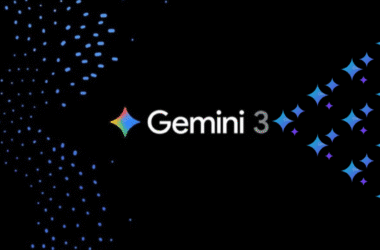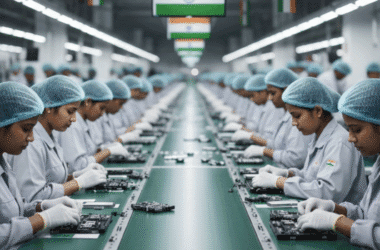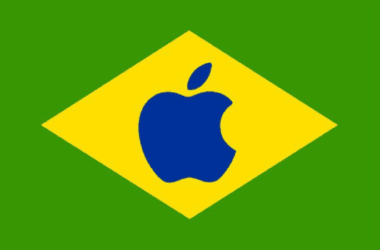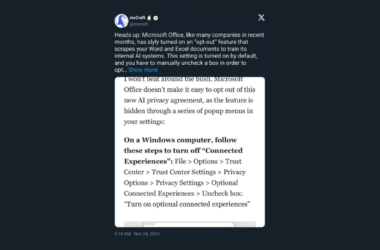In a recent development, the United States International Trade Commission (ITC) issued a preliminary ruling against Chinese display manufacturer BOE, accusing the company of misappropriating trade secrets from South Korean tech giant Samsung.
Table of Contents
- Background of the ITC Ruling
- Apple’s Response: Business as Usual
- Potential Impact on BOE and the Chinese Market
- What’s Next for the ITC Ruling?
- Broader Implications for the Tech Industry
The ruling, which recommends a restricted exclusion order and a cease-and-desist order against BOE, could potentially disrupt the import and sale of BOE’s OLED displays in the U.S. market. However, Apple, one of BOE’s major clients, has confirmed that the decision will have no impact on its iPhone product lineup.
Background of the ITC Ruling
The ITC’s preliminary ruling stems from allegations that BOE unlawfully acquired proprietary technology related to OLED display manufacturing from Samsung. The commission’s proposed exclusion order could limit BOE’s ability to supply OLED displays to the U.S.. In contrast, the cease-and-desist order would further restrict the company’s operations in the American market. The ruling has raised concerns about potential disruptions in the global supply chain for OLED displays, which are critical components in modern smartphones, including Apple’s iPhones.
Apple’s Response: Business as Usual
Despite the potential implications for BOE, Apple has reassured stakeholders that the ITC’s ruling will not affect its iPhone products. The tech giant, which sources OLED displays from multiple suppliers, including BOE and Samsung, emphasized that its supply chain remains robust and unaffected by the preliminary decision. This statement aligns with Apple’s strategy of diversifying its supplier base to mitigate risks associated with geopolitical and legal challenges.
Apple’s confidence in its supply chain stability highlights its ability to navigate complex trade disputes without disrupting its product ecosystem. The company has not provided specific details about its contingency plans, but has made it clear that iPhone production and availability in the U.S. will continue as planned.
Potential Impact on BOE and the Chinese Market
While the ITC ruling primarily targets BOE’s operations in the U.S., speculation has emerged about its broader implications, particularly in the Chinese market. BOE is reportedly authorized to produce low-temperature polycrystalline oxide (LTPO) displays for Apple’s upcoming iPhone 17 Pro and Pro Max models, which are expected to launch in 2026. These advanced displays are crucial for enabling features like ProMotion and always-on displays, which have become staples in Apple’s premium devices.
However, the ruling’s impact on BOE’s ability to supply LTPO displays remains uncertain and speculative at this stage. If the ITC’s orders are finalized, BOE could face challenges in scaling its production for Apple’s high-end iPhones, potentially forcing Apple to rely more heavily on other suppliers like Samsung or LG Display. This shift could have ripple effects on BOE’s market position and its competitiveness in the global display industry.
What’s Next for the ITC Ruling?
The ITC’s preliminary ruling is not final and is subject to further review. A final decision is expected in November 2025, after which the case may undergo a presidential review to assess its broader implications for U.S. trade policy and national interests. This review process could introduce additional considerations, such as exemptions or modifications to the proposed orders, depending on the economic and geopolitical context.
For now, the ruling remains a point of contention in the ongoing competition between global display manufacturers. Samsung, which initiated the complaint against BOE, continues to assert its dominance in the OLED market, while BOE faces the challenge of defending its technological advancements and market share.
Broader Implications for the Tech Industry
The ITC’s ruling underscores the growing scrutiny of intellectual property rights in the tech industry, particularly in the highly competitive display manufacturing sector. As companies like Apple increasingly rely on advanced display technologies to differentiate their products, disputes over trade secrets and proprietary innovations are likely to intensify. The outcome of this case could set a precedent for how trade disputes are resolved in the global supply chain, potentially influencing future partnerships and sourcing strategies.
For consumers, Apple’s assurance that iPhone availability will remain unaffected is a positive signal. However, the long-term implications for BOE and the global display market will depend on the final ITC decision and how suppliers adapt to the evolving regulatory landscape.
While the ITC’s preliminary ruling against BOE has raised eyebrows in the tech world, Apple’s swift response demonstrates its ability to maintain stability in its supply chain. As the final decision looms in November 2025, all eyes will be on how BOE navigates this challenge and whether it can maintain its role as a key supplier for Apple’s next-generation iPhones. For now, iPhone users can rest easy knowing that their devices are unaffected by the ongoing trade dispute.









